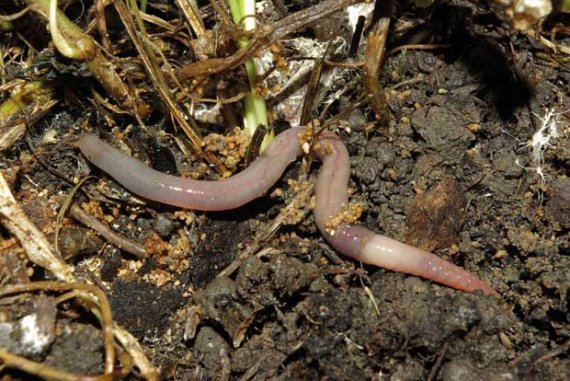Earthworms increase the fertility of the soil, but it turns out that is not all they do. They also produce greenhouse gases, Wageningen soil scientists reported in Nature Climate Change on 3 February. Earthworms break down organic plant material in the soil, a process which releases carbon dioxide (CO2) and laughing gas. This increases CO2 emissions by up to 33 percent and laughing gas emissions by 42 percent, concludes PhD researcher Ingrid Lubbers of the Soil Quality department. She analysed the results of 57 previous studies on the contribution of earthworms to the greenhouse effect. The breakdown of plant litter causes carbon dioxide to be released. Moreover, the digestive system of the earthworm forms a breeding place for bacteria that produce laughing gas. Thirdly, these greenhouse gases can more easily escape into the atmosphere thanks to the tunnels through the soil that the earthworms make. Earlier studies had already established that earthworms produce laughing gas, but it was not clear what their impact was on CO2 production. Some studies concluded that the worms actually deposit carbon in the soil. But that does not appear to be the case, concludes Lubbers from the meta-analysis. She did the study together with her supervisor Jan Willem van Groenigen and researchers from UC Davis, Trinity College Dublin and the International Center for Tropical Agriculture in Colombia. Van Groenigen considers it ironic that the earthworm, which is so good for soil fertility and sustainable agriculture, should have such a negative impact on greenhouse gas emissions.
Earthworms produce greenhouse gases
Breakdown of plant litter produces CO2 and laughing gas.Researcher: negative impact of the earthworm is 'ironic'.

